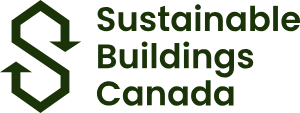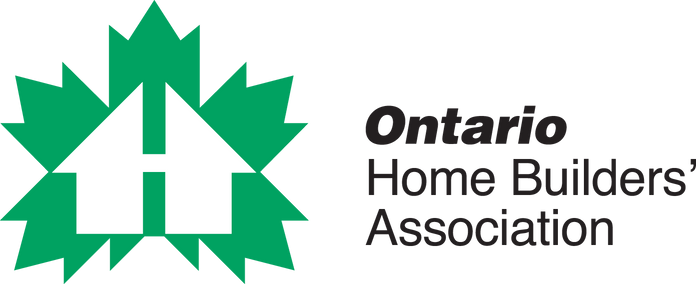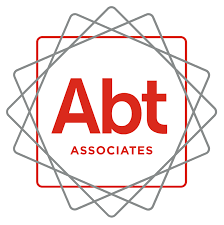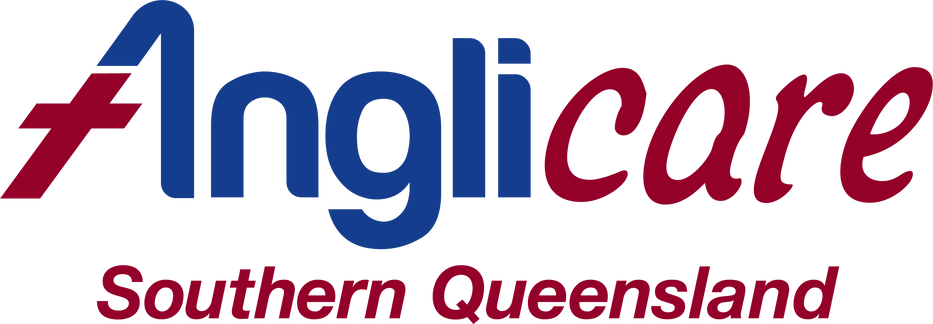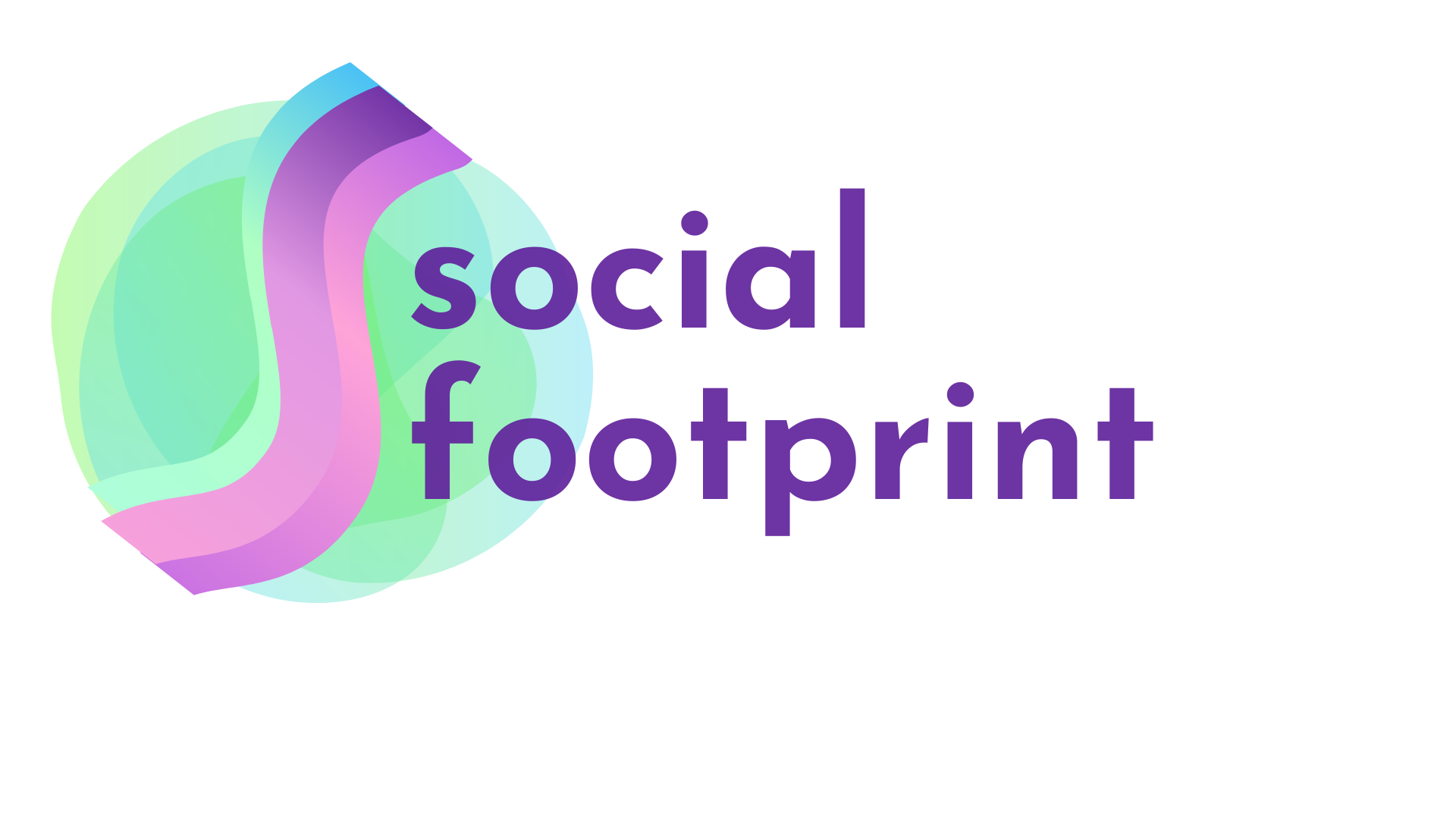
About Social Footprint
Bringing people together to solve complex system issues, across diverse sectors, we develop solutions, and innovations for, and with the community.
We collaborate
with public, private and not-for-profit organizations in the development of appropriate, and workable solutions, strategies, frameworks and plans.
We thrive
in working collectively, constructively and creatively to solve complex issues no matter how difficult the conversation or problem.
We connect
the voice, expertise and experience of diverse people and communities across systems.
We specialize
in engagement practice, evaluation and research methodologies.
We translate
evidence and experience-based knowledge into strategy, action and change.
We are: Facilitators | Engagement Practitioners
| Analysts, Strategists and Planners |
Social Scientists | Researchers and Evaluators
Our approach
The values and principles threaded through our approach:
Relationships &
Partnerships
Lived Experience Engagement
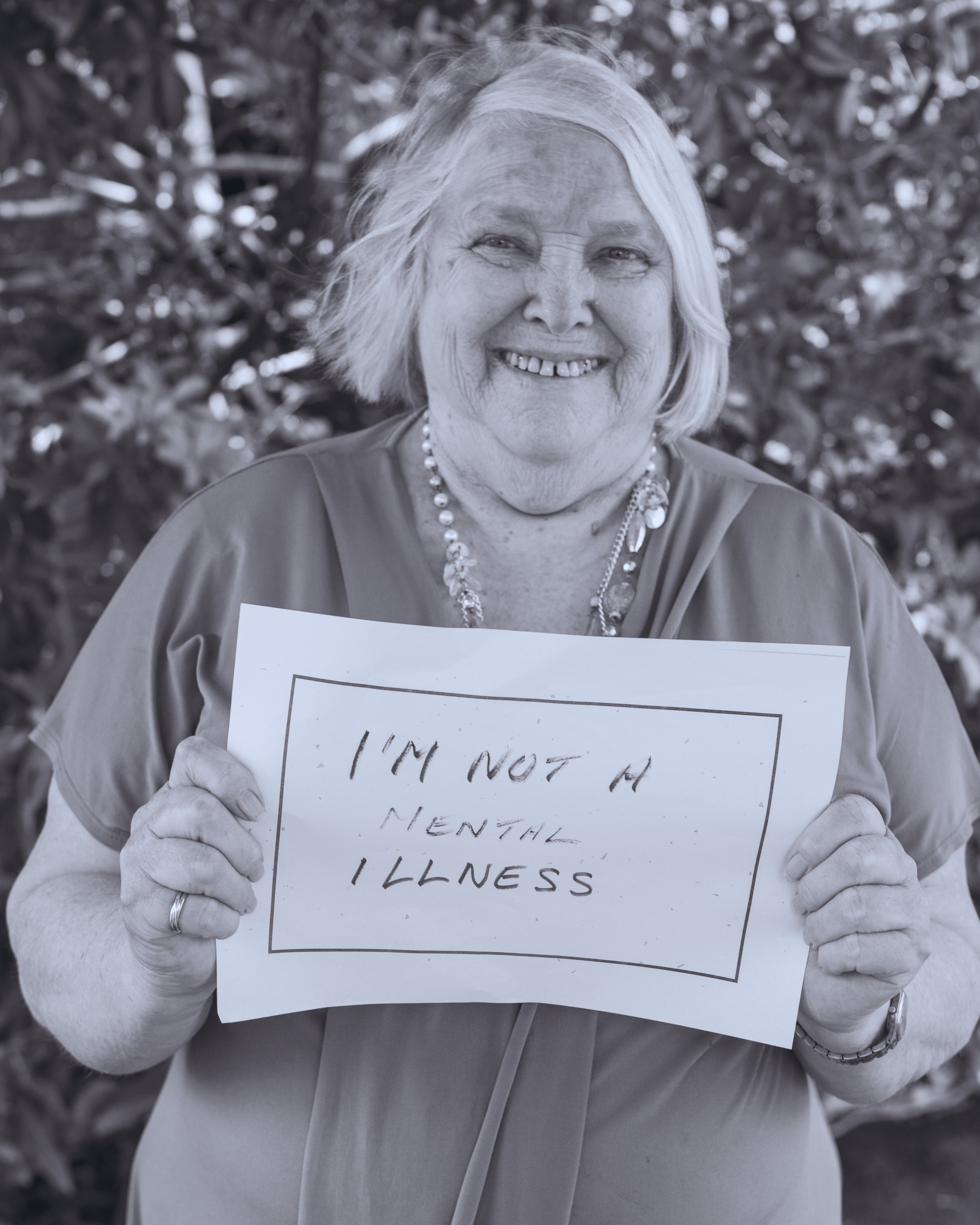
Capabilities:
- Lived and Living Experience governance and leadership
- Client, Family, Caregiver lived experience engagement methods
- Peer workforce development; peer-led models and integration
- Recruitment and support
- Policy, systems, and process for effective and safe lived experience integration
- Experience-based measurement
Participatory Action
Our participatory action research practice is grounded by the following ethics:
Empowering
and safe
Amplifying diverse voices
Insight distillation, theming and synthesis
Stories as catalyst
for change

Capabilities:
- Semi-structured and peer interviewing
- Focused group discussion and workshop facilitation
- Digital storytelling
- Experienced-based, qualitative data collection and thematic analysis
- Survey design, methods, and implementation
Capabilities:
- Semi-structured and peer interviewing
- Focused group discussion and workshop facilitation
- Digital storytelling
- Experienced-based, qualitative data collection and thematic analysis
- Survey design, methods, and implementation
Person-Centred Co-Design
Our principles of co-design, below, were developed with people with a lived experience of mental health challenges. These guide our practice in every setting.
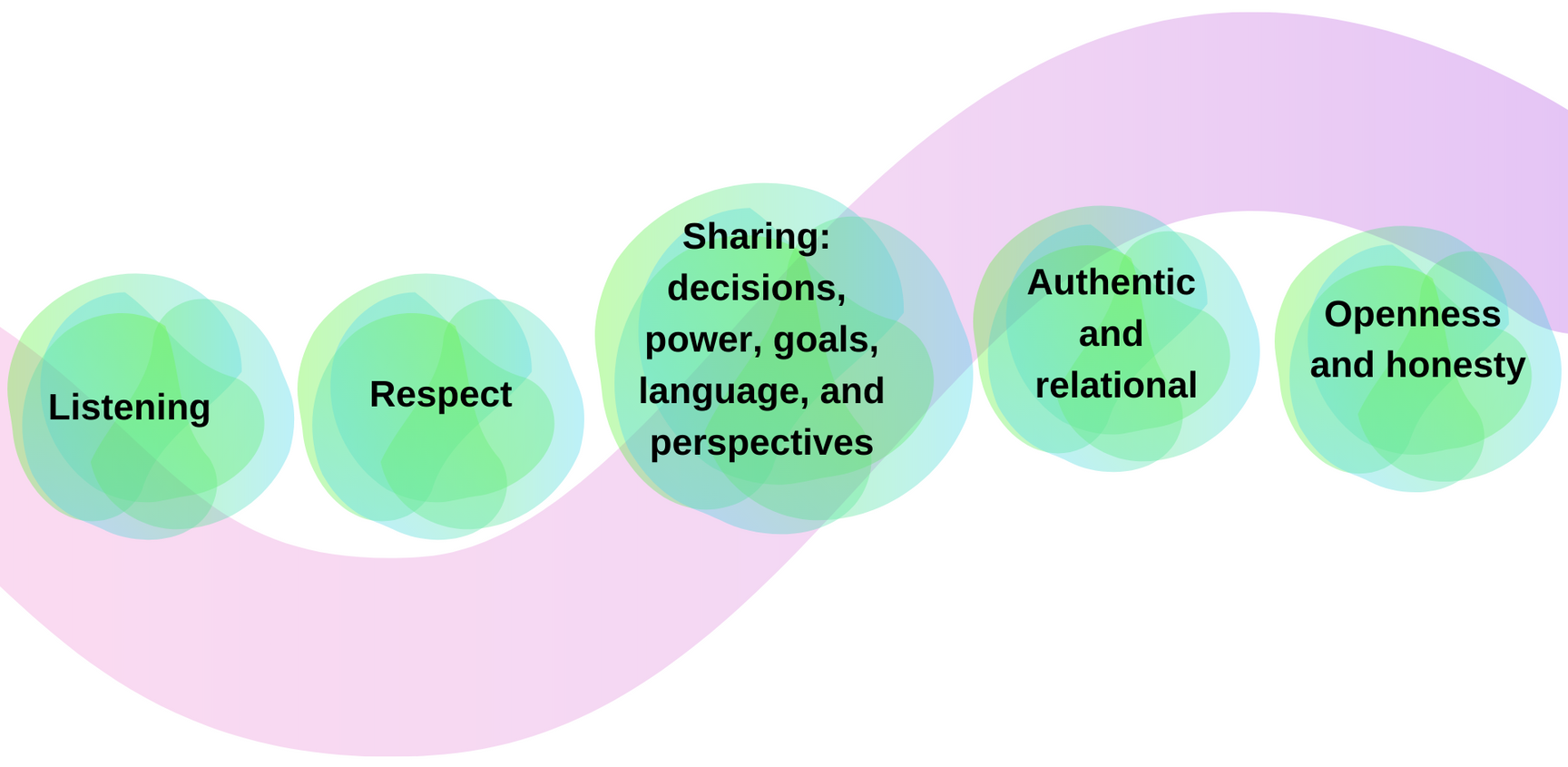
Health & Social Equity
Applying an intersectional lens to assess and address social factors, inequities, histories, and experiences for individual and community wellbeing.
Focus on building relationships and partnerships to achieve social and health equity and wellbeing.
- Health and social equity strategy
- Equitable health and social service design
- Community assessment
- Social connection mapping
- Inclusive engagement tools, methods and practices
- Workplace wellbeing and training
- Partnership facilitation and development
Capabilities:
Systems Thinking
Pathfinding to determine appropriate analytical lens and tools to support strategic direction, pathways, and practical steps.
Oriented towards building connectivity across systems and working towards collaboration and integration
Tolerance for complexity
Working across boundaries with a diversity of perspectives and data from those working within systems, and those outside to gain a comprehensive, and shared understanding of challenges.
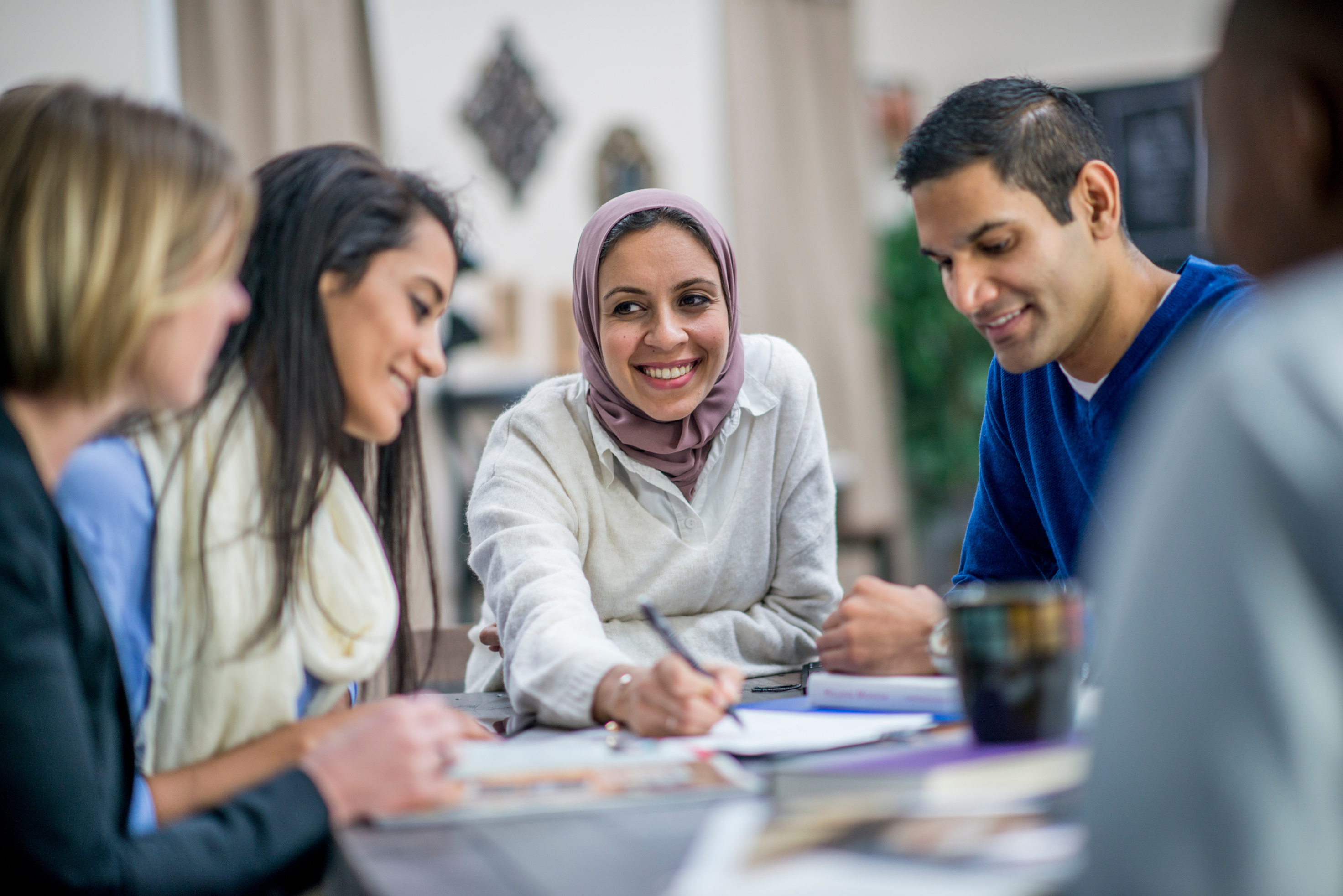
Capabilities:
- Gap analysis
- Organizational assessment
- Journey and process mapping
- Service planning
- Framework and model of care design
- Landscape scan and situational assessment
- Systematic research and literature review
- Quantitative and qualitative data analyses
Projects
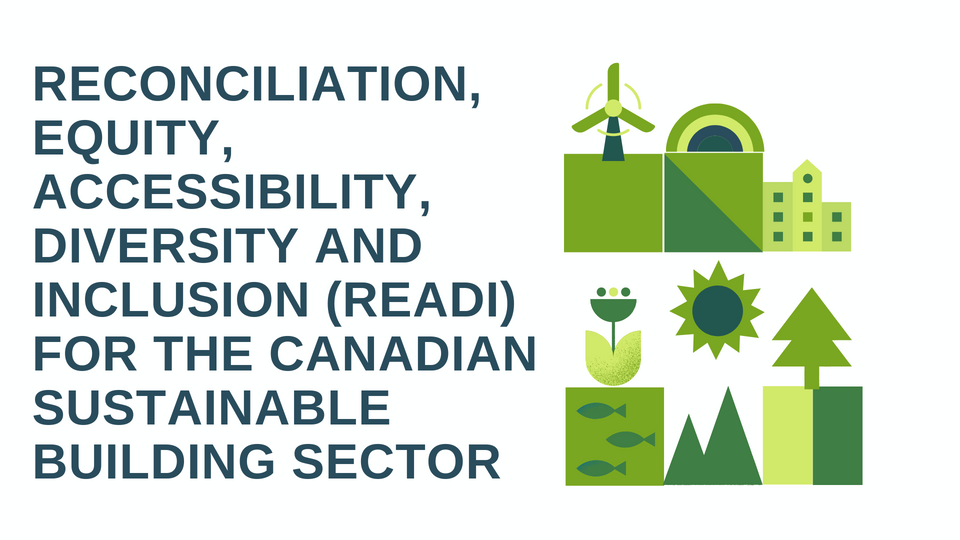
Developing a Reconciliation, Equity, Accessibility, Diversity and Inclusion (READI) policy and practice framework for the Canadian
sustainable building industry
Client: Sustainable Buildings Canada
Challenge: Reconciliation, equity, accessibility, diversity and inclusion framework for sustainable buildings sector that would reflect integrated and universal design practices and build capability.
Method: Research and review of case studies and trends, panel review discussions.
Outcome: An integrated conceptual framework with practical templates, examples, action planning tools to support translation of practice.
Projects
Conversations in Mental Health: a lived experience mental health literacy video package
Client: Metro North Mental Health
Challenge: A need to build mental health literacy and address stigma using the voices and experiences of those with lived and living experiences of mental health challenges.
Method: Co-design of video concept, workshop and focused discussion groups to determine concepts, key terms, and format.
Outcome: Conversations in Mental Health video, establishment of Lived Experience Engagement Educator role, training modules.
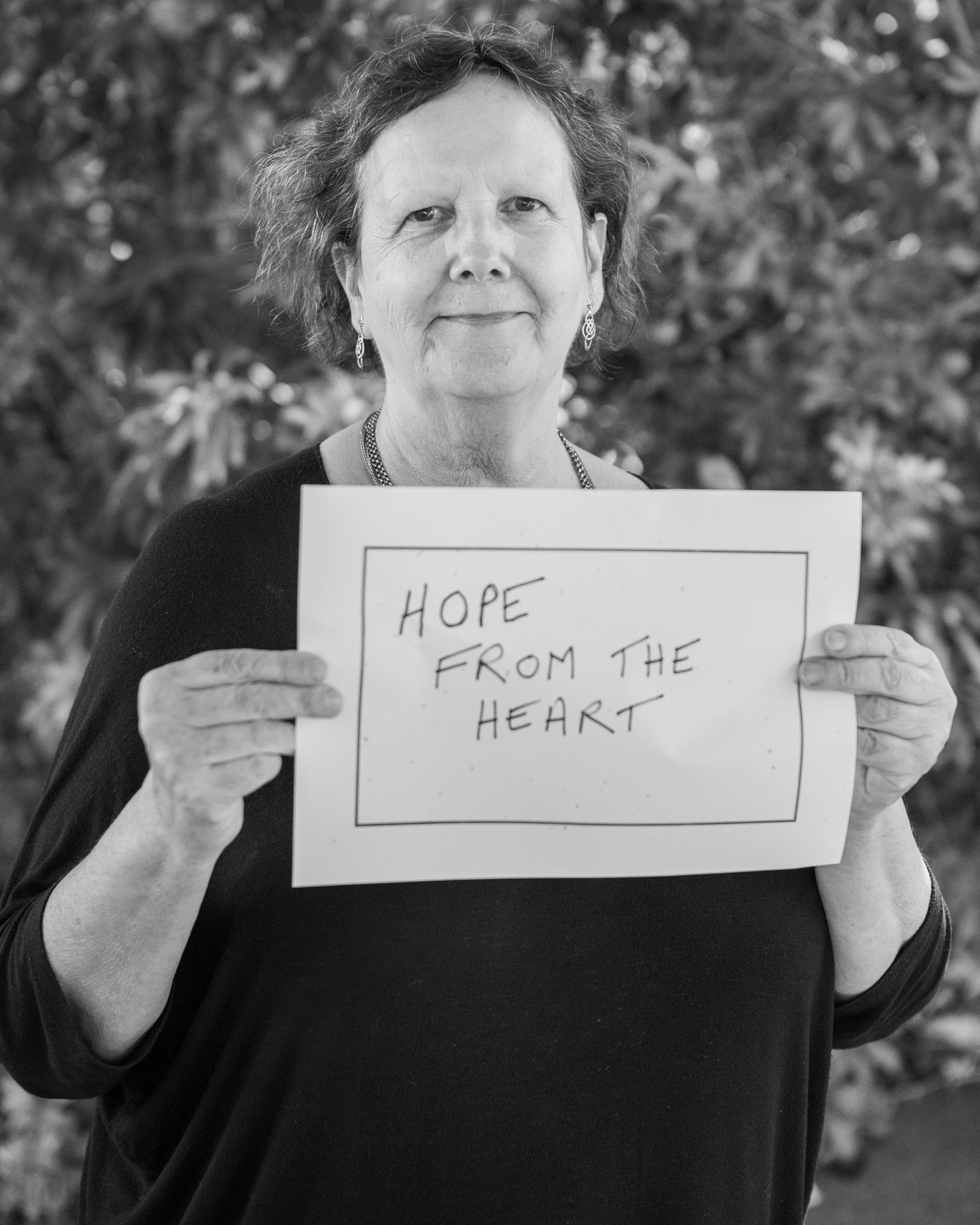
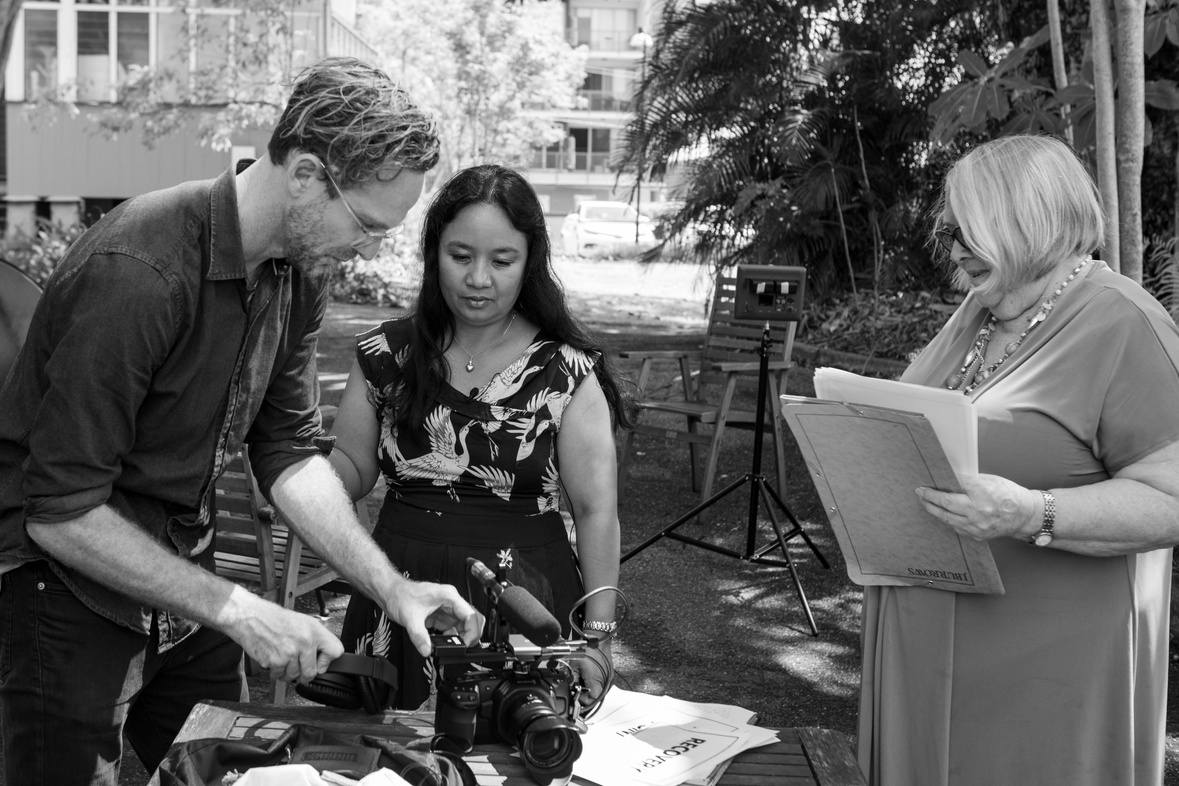
Projects

Client: Ontario Home Builders Association Job Ready Program (with Seeline Group)
Challenge: Evaluation of the OHBA Job Ready Program to address gaps in the construction workforce and to meet housing demand in a changing economic context.
Methods: Discovery review process; stakeholder interviews; situational and gap analysis; partnership and participant experience survey; landscape scan and research.
Outcomes: Evaluation report, recommendations, new program design and funding submission.
Projects
Integration of domestic and family violence response in an Indigenous
maternal health program
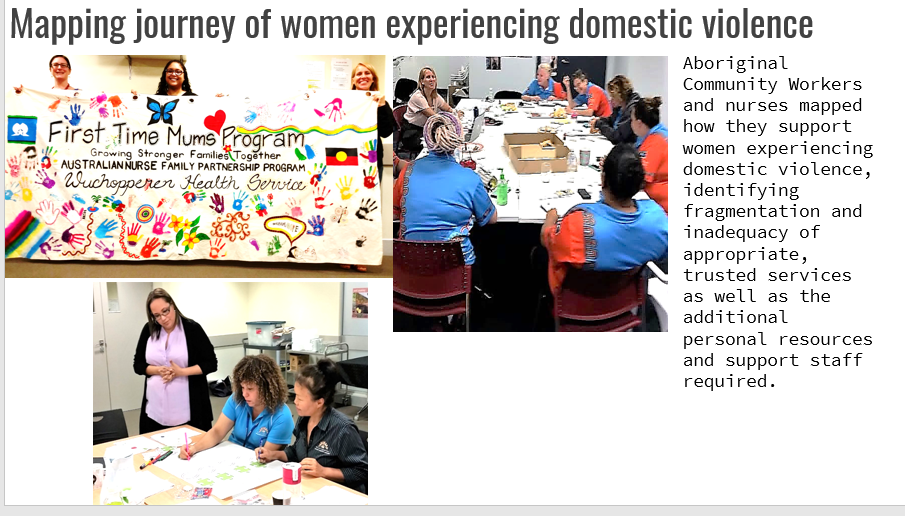
Client: Abt Associates/ Department of Prime Minister and Cabinet
Challenge: Aboriginal community-controlled health services, nurse practitioners and family partnership professionals require skills, knowledge and networks to respond appropriately to clients in a maternal program experiencing family and domestic violence.
Methods: Multi-site visits across Australia, leadership interviews, practitioner workshops and client journey mapping, empathy mapping, gap analysis, staff survey and needs identification.
Outcome: Workforce needs analysis and recommendations resulting in training and resources.
Projects
Consumer Engagement
in research framework

Client: Queensland University of Technology, Centre for Healthcare Transformation
Challenge: Patient engagement in research is undertaken by individual researchers and teams. A need to embed engagement in the full cycle of health research from priority setting, research design through to clinical trials and co-authorship.
Method: Implementation science approach, virtual and in-person workshop and survey.
Outcome: Report on outcomes, costed plan, role description, and framework implementation guide.
Projects
The Rainy-Day project: exploring language, decision-making,
and care at end of life
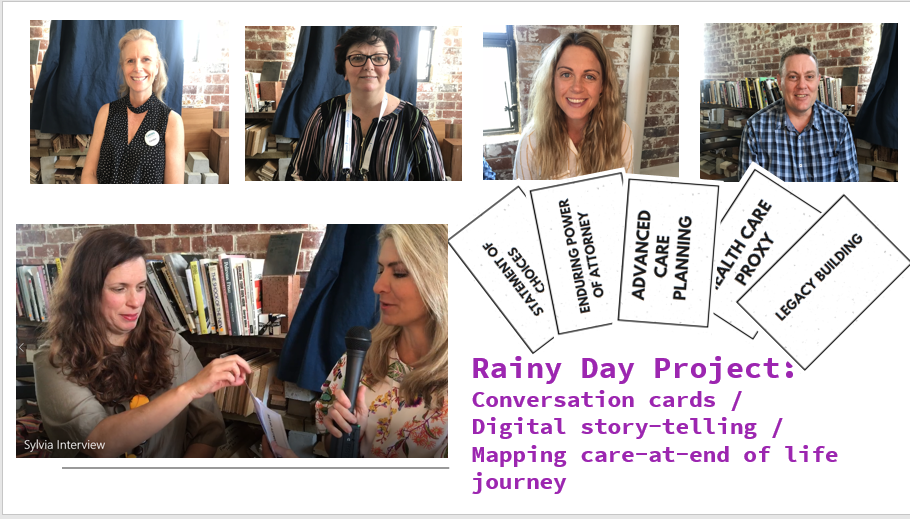
The Rainy-Day project: exploring language, decision-making, and care at end of life
Client: Cancer Care Services, Royal Brisbane and Women's Hospital
Problem: Families and consumers with potentially life-limiting health conditions often lacked information and understanding to make informed decisions about the things that mattered most to them and to plan for care at end of life. Conversations about care at end of life are difficult for families and for clinicians.
Method: Journey mapping workshop and personal reflections on care at end of life language, decisions and priorities.
Outcome: Short video series and validation of Rainy Day concept to support conversations and decision-making.
Projects
Equity & Inclusion Framework
Inclusive Engagement Toolkit
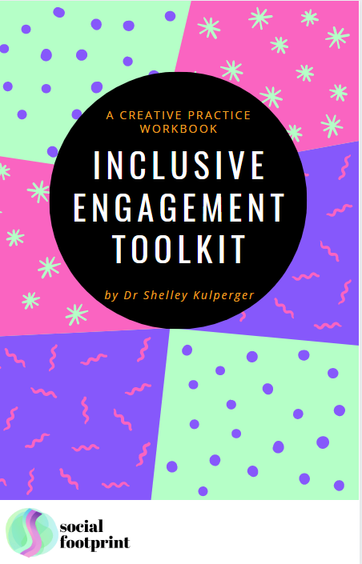
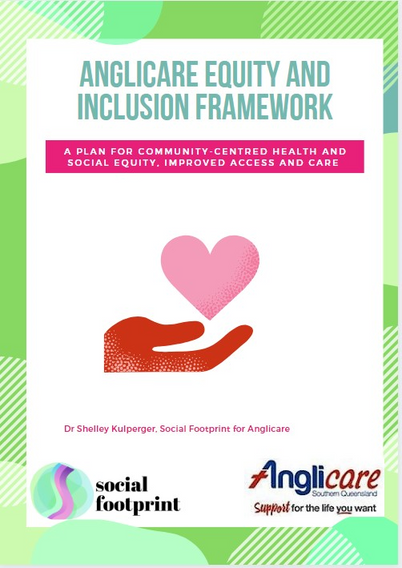
Client: Anglicare South East Queensland
Problem: As a provider of personal and long-term care, ensuring culturally appropriate services was a priority especially with the introduction of consumer-driven and procured packages. The risk of widening gaps for those in the community with literacy issues was identified. Additionally, given the diverse services, there was a need to align the approach in long-term care to other areas such as housing and family services.
Method: Comprehensive engagement with the Sudanese community was held working with multicultural health workers and leaders. A combined session with aged care coordinators and community members from diverse backgrounds was held to map client journeys and barriers to access appropriate care packages and referral pathways.
Outcome: An integrated equity and inclusion framework and inclusive engagement toolkit, new resources and interventions to connect with families earlier in their journey.
Projects
Harmony Day Event - Harmony Day flag messaging installation
Client: St John's Anglicare Church
Harmony Day 2017 fell in the aftermath of the Christchurch terrorist attack on a mosque that left 50 Muslim people dead.
St. John's Anglicare church held a special Harmony Day event.
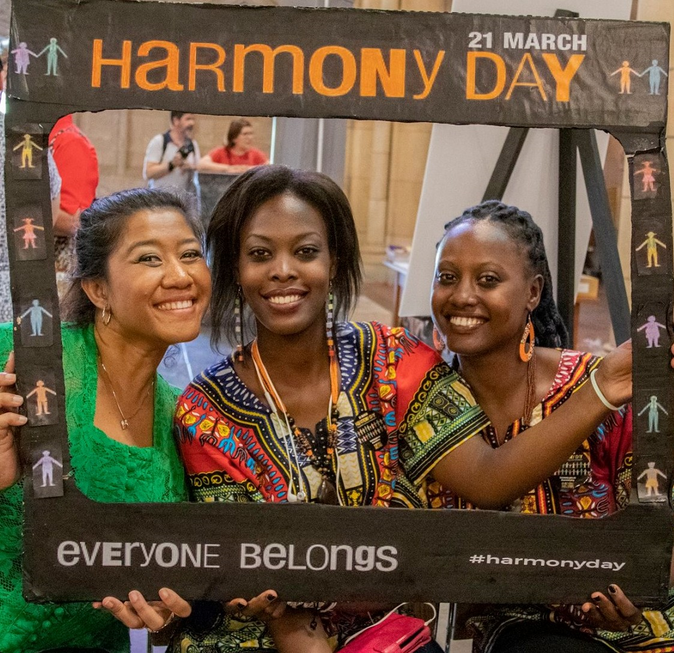
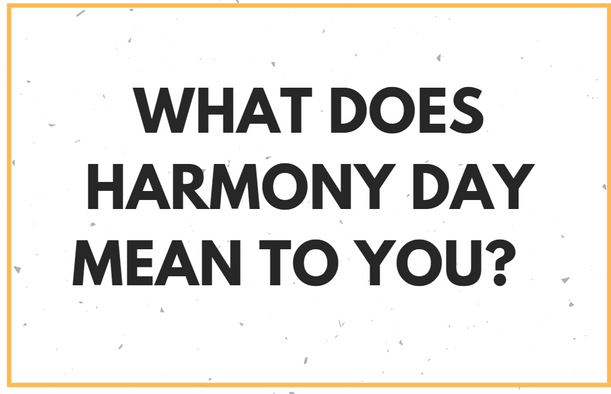
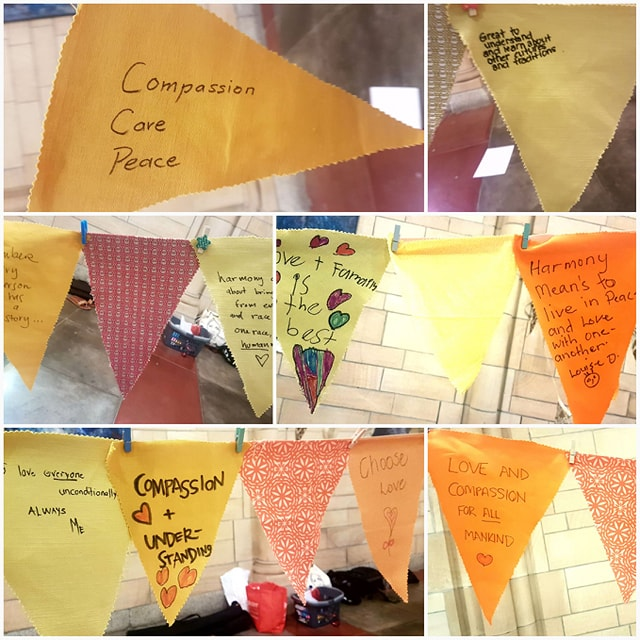
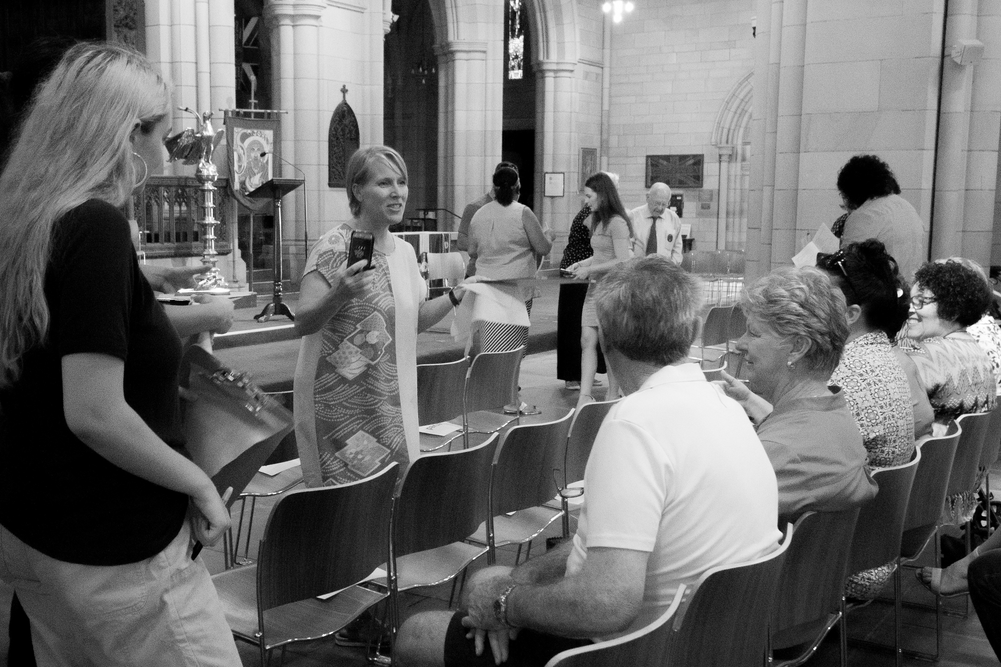
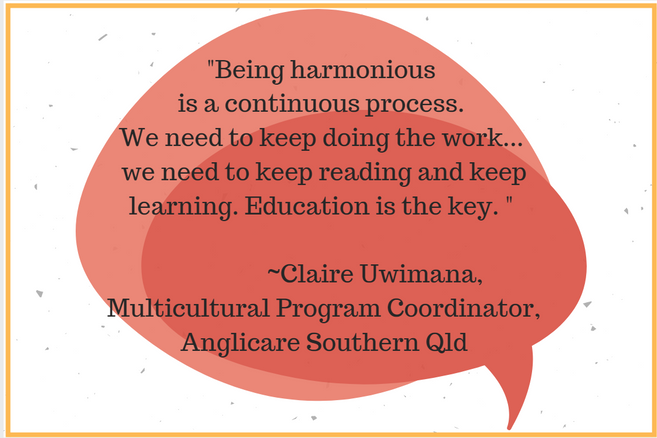
Projects
Arabic-speaking community wellbeing project: co-designing solutions to address social determinants of health
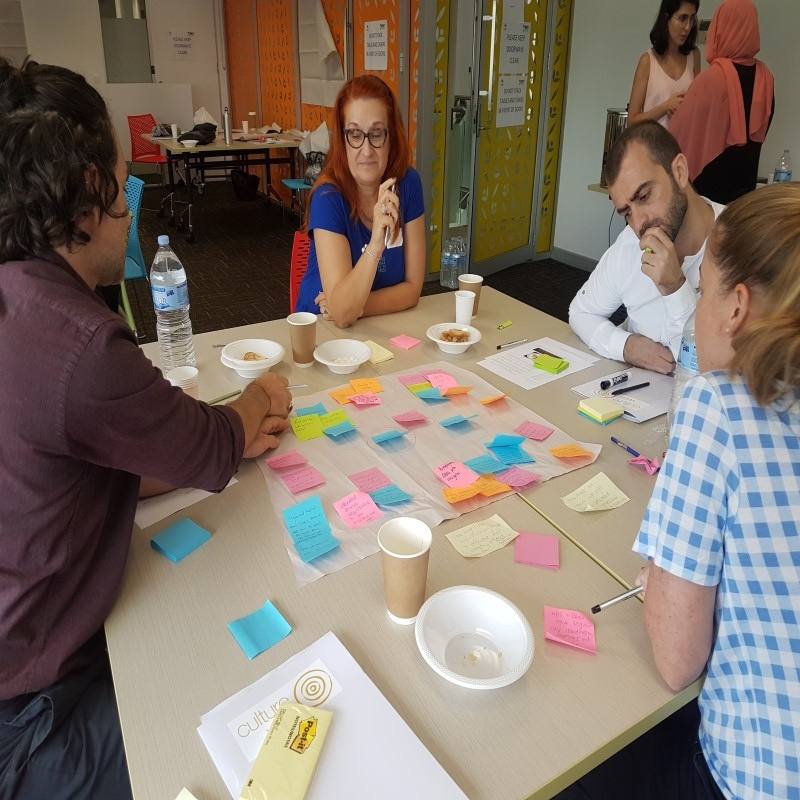
Client: Asthma Foundation, World Wellness Group.
Challenge: Mental health and wellbeing in the Arabic-speaking community is multifaceted, determined by a range of interrelated social factors that requires integrated, community-determined solutions. Conditions such as asthma need to address other factors of wellbeing.
Methodology: A systems map developed with the Arabic-speaking community in Brisbane was undertaken to determine: how the community defines wellbeing using a ‘wellbeing wheel’. This mapping found two social determinants had the greatest impact on overall health: employment and social connection.
Methods: A culturally-appropriate co-design process bringing together content experts and decision-makers: health system managers, bicultural health workers, Arabic-speaking community members and community organizations. The workshop used empathy and journey mapping based on three personas (newly-arrived Syrians) seeking social connection or employment) followed by a priority setting and budgeting activity.
Outcome: Consensus on collaboratively developed solutions, resulting in funding for employment pathway concept.
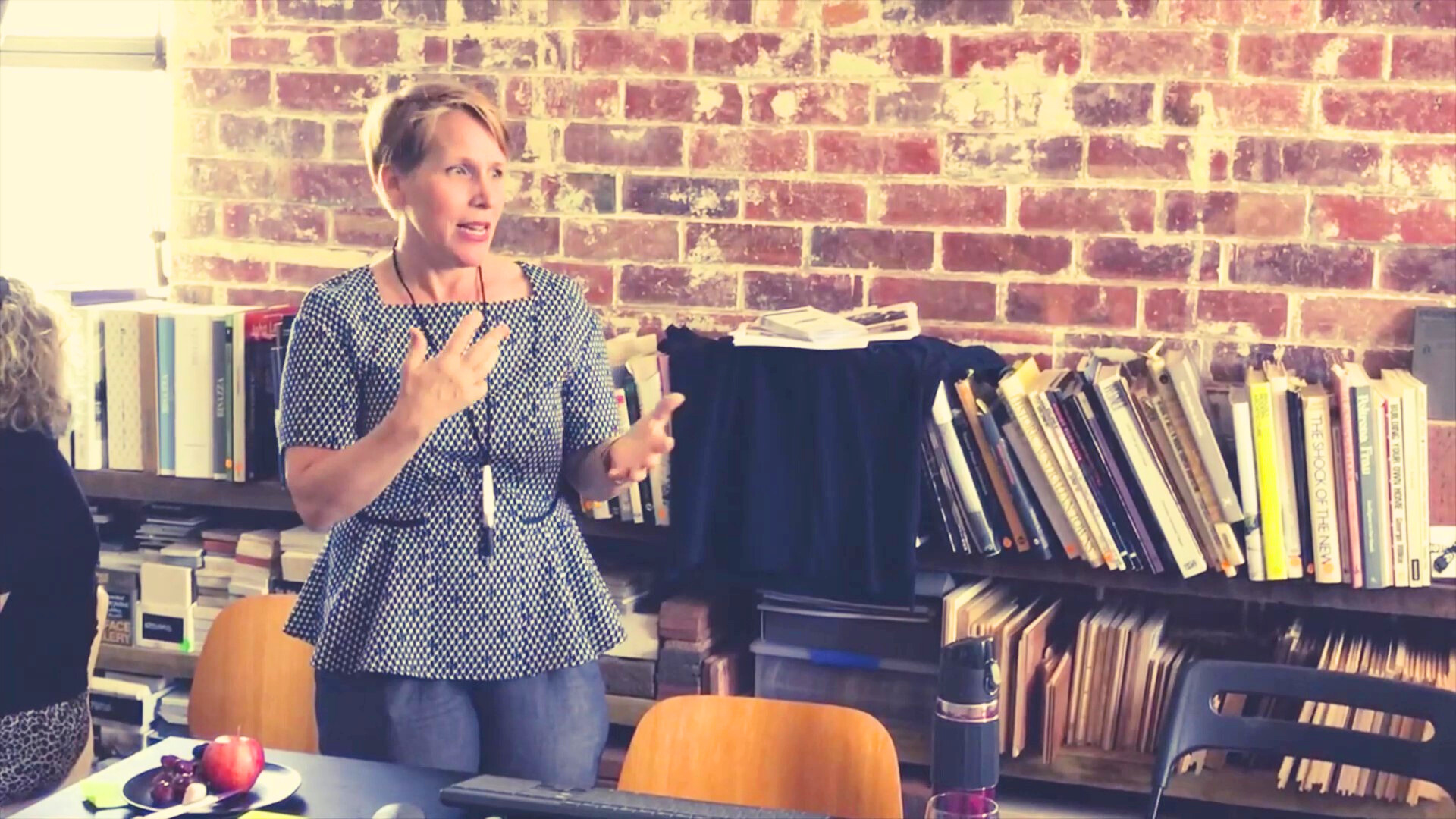
Dr Shelley Kulperger founded Social Footprint
out of a desire to bring creative and rigorous engagement methods to social, health and wellbeing strategic initiatives.
Social Footprint consults and collaborates with diverse sectors in Canada and Australia.
Team
(Toronto, Canada)
Dr Paul Newman
SOcial Policy Leader with expertise in
Housing, Reconciliation, employment pathways and programming
Leslie kulperger
Evaluation expert
environmental scientist
Program management
Lived experience leadership
Nicole Weatherly (SHE/ HER)
Engineeer, teacher, multimedia artist, co-design expert
Lived experience expertise
equity, diversity and inclusion
Clients
